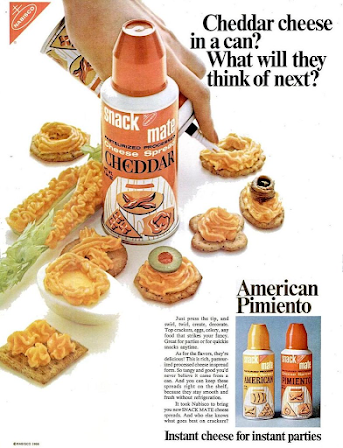Born in the USA...
When we kids needed a junk food run, it was the Circle K or the 7-11. In the mid-70s 35 cents could get you a Coke or a can of nasty Cheez Whiz that was a) forbidden and therefore b) so good we ate it right from the can.
The convenience store was invented in the 1920s in Texas, when several ice businesses (back then you literally had an 'ice box') realized that folks wanted to buy small food items at any hour of day or night.
The 7-11 chain was run by the Thompson family for decades. That's the one that I remember from the 70s; candy bars, slushies, peanuts, newspapers, beer, ciggies.
Perfected in Asia!
So this might seem weird in an Asian food blog, right? Well, please bear with me: 7-11 was acquired in the 1990s by a Mr. Masatoshi Ito (伊藤 雅俊) who called the new company 7&i Holdings. He revamped it to supply, well, nearly everything.
Mr. Ito in 1989. This amazing entrepreneur, born in 1924 to parents who owned a small clothing store, died on March 10 at 98 years old. This photo from https://edition.cnn.com/2023/03/14/business/japan-billionaire-7-eleven-masatoshi-ito-death-intl-hnk/index.html.
Today, in Japan, Taiwan, China, and Thailand (OK pretty much all of Asia), I and millions of others dart into the 7-11 for many of the necessities of life. Munchies, TP, shampoo, cosmetics, school supplies, to buy a train ticket, make a color print, pick up a mailed package...
The Smackdown
So in a 3-way contest between the 7-11s I know best: USA, Taiwan, and Japan, who wins? Yeah, I'm American. But, somehow the home team 7-11s do not cut the mustard.
Here's a sampling of the offerings in my Osaka neighborhood store:
Most highly evolved?
Asian Seven-elevens.
Darwin would agree.






















